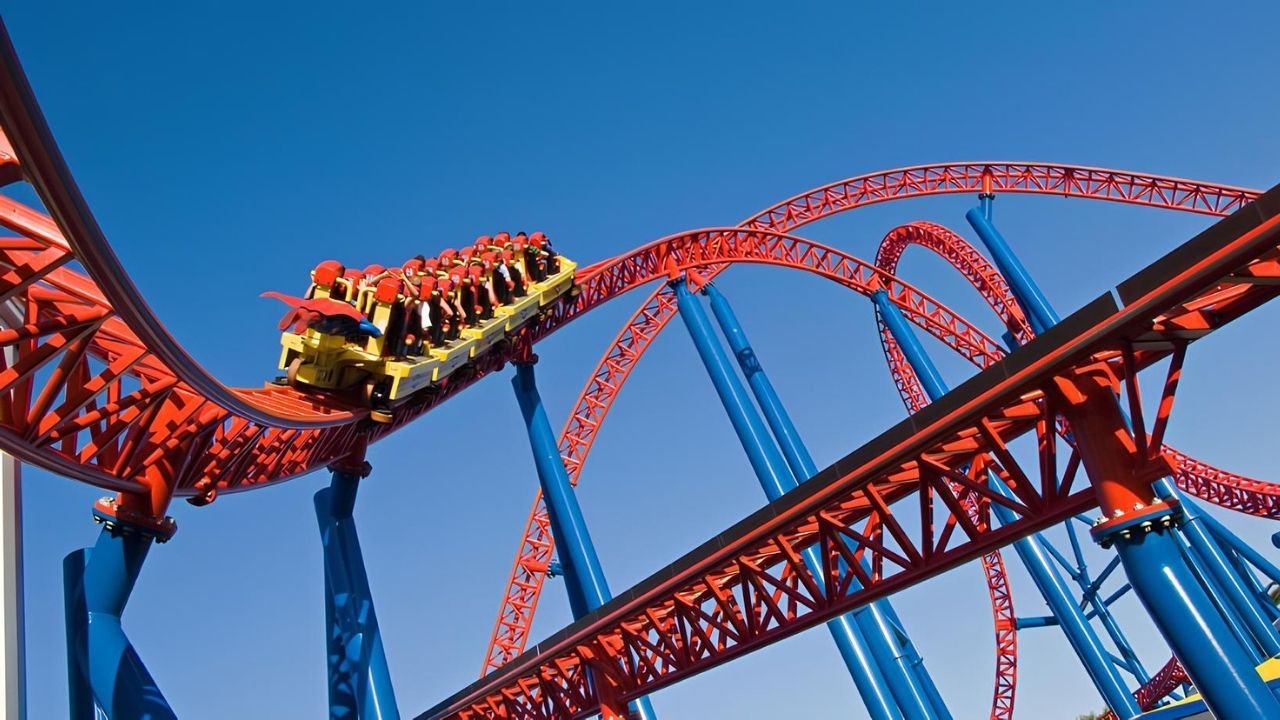Ready to put your physics knowledge to the test? This Kinetic Energy Quiz will challenge your understanding of the forces and principles that govern the movement of objects. Whether you’re a student brushing up for an exam or a science enthusiast, this quiz offers a comprehensive look at kinetic energy. Sharpen your pencils and get ready to dive into the fascinating world of moving objects and the energy they possess. Good luck!
We recommend that you do not leave the page that you are taking this quiz in. Stay honest 🙂
Kinetic Energy Quiz Questions Overview
1. What is the formula for calculating kinetic energy?
KE = 1/2 mv^2
KE = mv^2
KE = 1/2 m^2v
KE = m/v^2
2. Which of the following factors does NOT affect an object’s kinetic energy?
Mass
Velocity
Height
Speed
3. If the velocity of an object doubles, how does its kinetic energy change?
It remains the same
It doubles
It triples
It quadruples
4. What unit is kinetic energy typically measured in?
Newtons
Joules
Watts
Volts
5. Which of the following best describes kinetic energy?
Energy stored in an object at rest
Energy an object possesses due to its motion
Energy due to an object’s position
Energy released during a chemical reaction
6. A car and a bicycle are moving at the same speed. Which has more kinetic energy?
The car
The bicycle
Both have the same kinetic energy
It depends on the driver
7. How does mass affect kinetic energy?
Kinetic energy is independent of mass
Kinetic energy is directly proportional to mass
Kinetic energy is inversely proportional to mass
Kinetic energy is proportional to the square of mass
8. Which of the following has the greatest kinetic energy?
A 1 kg object moving at 10 m/s
A 2 kg object moving at 5 m/s
A 0.5 kg object moving at 20 m/s
A 10 kg object moving at 1 m/s
9. What happens to the kinetic energy of an object when it comes to a stop?
It increases
It remains the same
It decreases to zero
It transforms into potential energy
10. Which scenario demonstrates kinetic energy being converted into another form of energy?
A car accelerating
A ball falling and hitting the ground
A compressed spring being released
A person lifting a weight
11. What is the kinetic energy of a 3 kg object moving at a velocity of 4 m/s?
6 Joules
12 Joules
24 Joules
48 Joules
12. Which type of energy transformation occurs in a pendulum at its highest point?
Kinetic energy to potential energy
Potential energy to kinetic energy
Thermal energy to kinetic energy
Chemical energy to potential energy
13. In which situation is kinetic energy being maximized?
A car at rest
A running athlete
A falling apple
A stationary rock
14. How does the kinetic energy of a gas molecule compare to that of a solid molecule at the same temperature?
Gas molecules have more kinetic energy
Solid molecules have more kinetic energy
Both have the same kinetic energy
It depends on the type of gas and solid
15. What is the relationship between temperature and the kinetic energy of molecules?
As temperature increases, kinetic energy decreases
As temperature decreases, kinetic energy increases
As temperature increases, kinetic energy increases
Temperature does not affect kinetic energy
We recommend that you do not leave the page that you are taking this quiz in. Stay honest 🙂
Can Your Friends Do Better Than You in This Quiz?
Share this quiz with your friends and compare results.
Was this page helpful?











